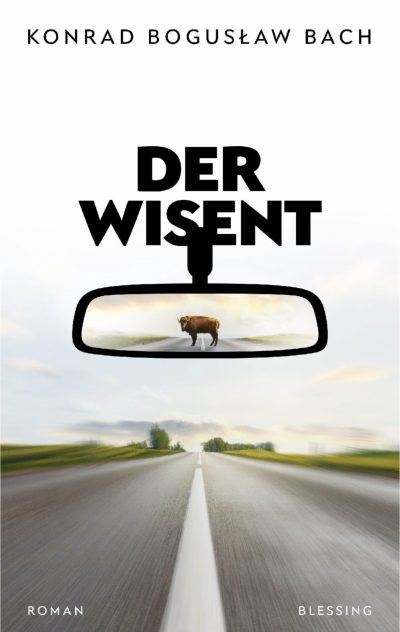The author and film-maker Konrad Bogusław Bach. Between Poland and Germany

At the primary school in the Döhren-Wülfel district of Hanover, the atmosphere was less reflective than at the Sunday services. Konrad Bach remembers that there were a lot of fights. “You didn’t get bullied; you got hit”, he says, adding: “There were a lot of kids from Poland at the school, but the Silesian community separated themselves within the Polish community. My brother and I had more trouble from them than from the Kazakh Germans or the children from former Yugoslavia.” Fights and foul language were the norm at his school, he says. Today, he reflects that the constant fighting might have been partly a symptom of the fact that the resettlers tended to be regarded by the majority society as a “lower caste”, and that the boys in particular wanted to vent their frustration as well as proving their worth in competition with each other. Of himself, Bach says: “I was already a competitive type at an early age, and I simply thought this was part of my nature. Perhaps it also had something to do with my position as an immigrant, though.” One thing is certain, however: Konrad Bach often felt isolated in his youth. The Germans weren’t interested in his Polish roots. Often, they couldn’t name more than two cities in Poland, and knew nothing about Polish culture and the Polish way of life. He was also not seen as being German, however – while in Poland, he was increasingly no longer regarded as being a “real Pole”. He felt alien and nowhere really at home. Instead, he found his own place to call home in literature. It all started when a friend in the fifth grade lent him the Jack London classic “White Fang”. He loved the adventure story from the far north. He went on to read other adventure novels, such as “The Last of the Mohicans” and “The Three Musketeers”. They were followed by Thomas Mann’s novels, which he loved for their language and for the recognition that it is possible to reflect on your own behaviour. When it came to Dostoevsky, he was struck by the opposite insight: that people ultimately remain a mystery even to themselves. A cousin gave him a reading list with “good literature”, which he worked through with zeal. Aside from the hugely successful Polish science fiction author Stanisław Lem, Homer and Kurt Vonnegut, he also discovered favourites of his own, such as Wolf von Niebelschütz.
For Bach, literature was a way of coping with the attempts by his fellow pupils to assert themselves through fights in the school playground. He cultivated a pacifist stance and refused to sign up for military service. As a Zivi, or “civilian volunteer”, he moved from Hanover to Freiburg, where he worked in a hospital. On the one hand, he planned to study theology and philosophy in the city later on, while on the other, an extra bonus was paid for every kilometre of distance from the volunteer’s hometown.
“It was a great time”, he remembers. “I was doing something useful; from my perspective, I had a lot of money, and I got to know a very different part of Germany.” However, Bach later moved to Berlin to study at the Free University after opting for drama and theology instead of philosophy. It was a logical choice, since he had been writing for several years, and had produced a play he had written himself, “Gilgamesh and Ishtar” for his Abitur school leaving exam. At university, he came into contact with very different types of people, from the rather stuffy, serious theologians to the extroverted, partygoing drama students. Bach vacillated, preferring sometimes one subject and the kind of people who studied it, then the other. In the end, however, questions around the existence of God and the meaning of life faded into the background, while the joy of theatre took on greater importance. The attitudes that prevailed in the Berlin theatres presented a serious challenge to Bach, who had conservative views about how plays should be staged. In time, however, he grew more open to the new forms and became a big fan of post-dramatic theatre. The subject of his Master’s thesis, which he later further developed in his dissertation, was “Laughing during a performance” (Das Lachen in der Aufführung). He explains, “In theatre studies, the focus is often on how the audience responds to performances. The discussion revolves around them being moved, energised or baffled. In my view, though, too little attention had been paid to laughter.”
Konrad Bach enjoys laughing himself, and likes to make other people laugh, too. For him, literature, theatre and opera are always also a form of entertainment. He describes his work on his dissertation, which was funded by a stipend from the German Research Foundation (Deutsche Forschungsgemeinschaft) as a “golden time”. He attended a colloquium every two weeks, but other than that, he was free to spend his time on research and reading, academic work, several periods of work experience at the theatre, and the production of short films. These films were usually about romantic relationships – presented in a humorous way. However, the subject of Bach’s short film “Magdalenas Akte” (“Magdalena’s File”) is a woman who finds her personal file in an archive and is able to change it. The five-minute version of this film was shown at numerous festivals and it won several prizes.



